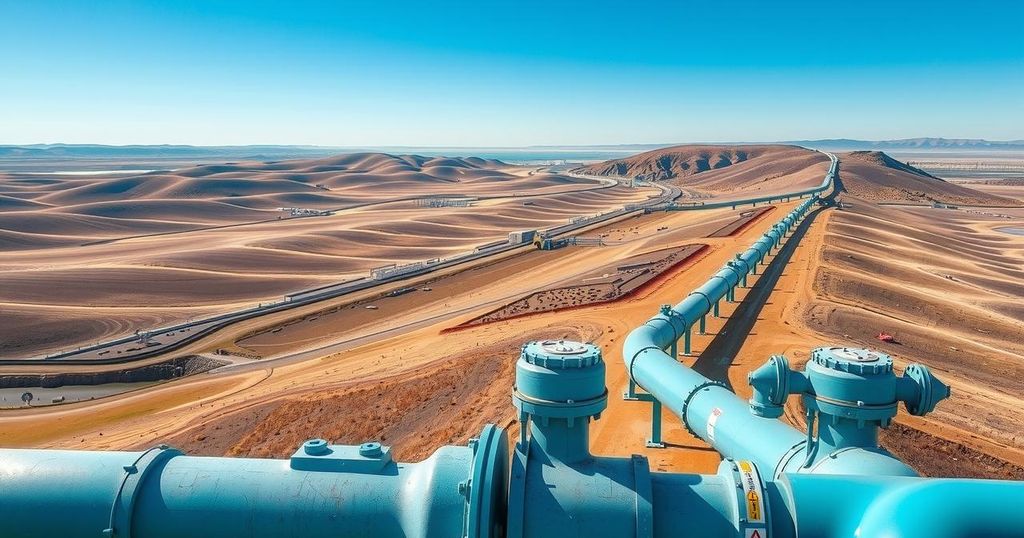Finance Minister Enoch Godongwana presented South Africa’s 2025 Budget, featuring a VAT increase, no inflation adjustments to tax credits, and substantial funding priority for social programs. Key investments in infrastructure total R1 trillion over three years, with a focus on health, education, and public services. The Budget also includes measures to increase efficiency and audits of government personnel.
In a significant development, Finance Minister Enoch Godongwana introduced South Africa’s 2025 Budget to Parliament, following a Cabinet meeting aimed at resolving disagreements regarding a proposed Value Added Tax (VAT) increase. This presentation was delayed from February due to internal debates within the Government of National Unity (GNU) concerning fiscal strategies.
The Budget outlines a VAT rate increment of 0.5 percentage points for both the 2025/26 and 2026/27 fiscal years, ultimately reaching 16%. Moreover, it indicates there will be no adjustments for inflation concerning personal income tax brackets or related rebates. Collectively, these adjustments are expected to generate R28 billion in 2025/26 and R14.5 billion in 2026/27. Additionally, R3.5 billion is allocated to the South African Revenue Service (SARS) for this year, complemented by R4 billion over the medium-term.
Key spending priorities include an additional R232.6 billion funding allocated to essential programs across the medium term. Provinces will receive a total of R2.4 trillion during the Medium-Term Expenditure Framework (MTEF) period, while local government equitable shares will increase significantly, from R99.5 billion to R115.7 billion by the 2027/28 fiscal year. Furthermore, the public sector wage agreement will entail an extra R7.3 billion cost for 2025/26, whilst R10 billion is designated to enhance Early Childhood Development subsidies.
Health budget allocations are projected to rise from R277 billion to R329 billion by 2027/28. Adjustments are also made to social grants, which include increases across categories such as Old Age and Disability, Child Support, and Foster Care. Importantly, the COVID-19 Social Relief of Distress initiative has been prolonged for one more year, with R35.2 billion assigned for this purpose. Defence and correctional services will receive R9.4 billion for improved funding.
Investment in infrastructure is prioritized with a commitment of R1 trillion over the next three years. This allocation breaks down to R402 billion for transport and logistics, R219.2 billion for energy infrastructure, and R156.3 billion for water and sanitation projects. Notably, new public-private partnership regulations will take effect on June 1, 2025, along with an intention to issue the first infrastructure bond in the 2025/26 fiscal year.
In terms of state capability and budget reforms, the Treasury will spearhead initiatives aimed at advancing spending efficiency. An audit of “ghost workers” will be conducted within national and provincial departments, along with implementation of recommendations from conditional grant reviews. Furthermore, R1.7 billion has been allocated for future disaster contingencies, with an additional R4 billion set aside to address recovery backlogs.
The 2025 Budget reflects South Africa’s strategic approach towards fiscal management, tax revenue enhancement through VAT adjustments, and significant investment in infrastructure and public services. The government’s commitment to funding essential sectors, while addressing the need for efficiency in spending, is evident. Key initiatives aimed at social support, health, and education underscore the administration’s prioritization of improving citizens’ welfare in the wake of economic challenges.
Original Source: allafrica.com




